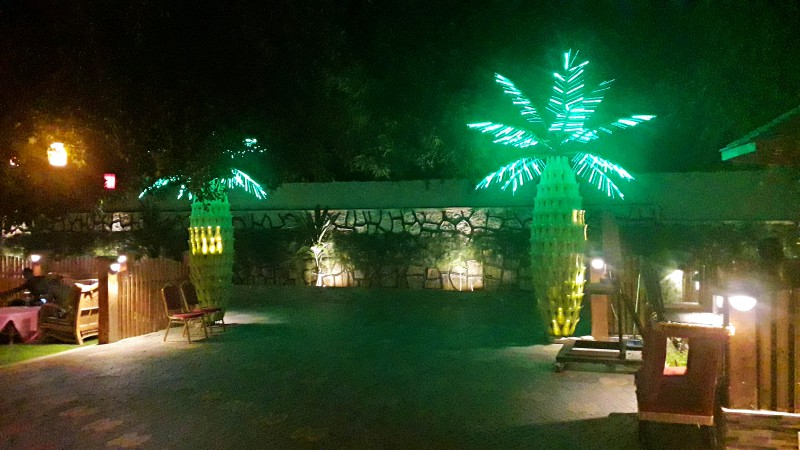In brief: the IMF has congratulated the Federal Government of Somalia on its progress on revenue collection and other reforms it considers necessary. It has also suggested that the government increase its regulation of the Somali Telecoms sector, an often-repeated request of the international community, worried about Al Shabaab’s use of mobile money services. Meanwhile, the insurgent group has been engaged in a taxation war with the Islamic State. In the middle of these contentions, between a rock and a hard place, stands Mogadishu’s successful business community.

The Islamic State (IS) has a small presence in Northeastern Somalia since 2015. Late 2018, a group led by the deputy head of the organization reportedly moved to Mogadishu to expand its operations there. The Mogadishu business community started receiving taxation orders from Islamic State, with threats of attack in case of non-compliance. One of these businesses was Hormuud, the telecoms giant with the largest market share in Mogadishu and South-Central Somalia[1].
Hormuud refused, and soon after began killings of its low-level staff: security guards, cleaners and clerks. Hormuud turned to Al Shabaab, who also taxes the organization, to complain about the situation. Al Shabaab (AS) had already received reports about IS efforts to tax Mogadishu businesses, and had warned businesses that they would be attacked with car-bombs if they complied with such demands[2]. AS requested Hormuud to provide them with full information about the demands received and the staff killed, and then set out to hunt down the IS operatives working in their territory. Within two weeks a series of assassinations took place. It appears that Islamic State in Mogadishu has been, temporarily, defeated. Its deputy head was also assassinated, although it is not clear by whom.
Al Shabaab has gained a reputation for ruthless but effective government. In areas they control, peace, law and order are kept, and even Al Shabaab’s fiercest critics admit that their justice system is efficient, independent and entirely non-corrupt. Somalis living in government-held areas prefer seeking redress in Al Shabaab courts, avoiding the notoriously corrupt and inefficient official court system. But the most feared and thorough department of Al Shabaab is the Amniyaat, its intelligence network. It enforces payment of taxes, also in areas outside its formal control such as Mogadishu, and holds records on all Somali businesses, even micro-enterprises[3].
Somalia’s business community is doing well and fueling growth in Mogadishu and many other urban centers of Somalia. The IMF forecasts a GDP growth of 3.1 %[4]. However, business cannot really thrive in the absence of a good regulatory framework, and now it is facing increased taxation – not only by insurgent groups, but also by the government. Indeed, as one business leader puts it, “every time the government needs to increase its revenue, they come to us with a new kind of tax”[5]. As the Somali government is incapable of collecting income, property or value-added taxes, given its lack of implantation in the local economy, it resorts to taxing major businesses, besides its traditional income through import tariffs and by selling licenses. This is the basis of the IMF-lauded increase in local revenue collection.
The IMF’s review, like the latest World Bank assessment and reports by the United Nations, reads like fiction for ordinary Somalis. The progress this government makes is on paper only. The Farmajo government that came into being early 2017 has accomplished very little in its first two years. Instead it is becoming increasingly authoritarian, suppressing political dissent, silencing the media and civil society and with sustained troll attacks on social media criticism. The international community either ignores these realities, or it just doesn’t see them. When the IMF speaks about the ‘stable exchange rate’, do its experts know that almost all transactions, whether in cash or by mobile money, are in US dollars?
Somalis joke that “All is well in the Republic of Halane”, referring to the heavily guarded ‘green zone’ around the airport, where the international agencies, African troops, foreign secret services, diplomats, contractors and many NGOs reside. Most foreigners never leave the compound, as the standard rate for a trip in a mandatory armored car plus armed escort is 1200 USD. Instead, government officials visit them. Meanwhile, one sees Turks, Syrians and other Africans go around town freely. Mogadishu is not quite so dangerous as security experts – mindful of their own liability – claim it is.
As the IMF review indicates, the business community, besides facing double taxation, is now increasingly also under pressure from the ‘Counter-Terrorism Financing’ rules imposed by the West, determined to avoid any funding of going to the insurgents. It is well-known that Al Shabaab does use the mobile money services provided by Hormuud and other mobile phone operators. In exchange, the insurgents don’t touch the installations or interrupt the operations of the telecom companies. How can these comply with increased government regulation without provoking the deadly wrath of Al Shabaab? If enforced, Western regulations would certainly kill off the most successful Somali business sector.
Luckily, we can expect that, here as in most
other fields, the federal government’s action will remain circumscribed to
paper, fed to international donors happy to report success stories which
justifies their continued involvement in the country. The Somali government
does not have the capacity to achieve the regulatory oversight or implement the
reforms desired by the International Financial Institutions; at least this may
guard this country from the IMF-suggested austerity measures that have thrown
Sudan and quite a few other African countries into chaos.
[1] Interview by the author with a directly concerned person on 28 February 2019
[2] Hiraal Institute: The War in Somalia in 2018. Published online on 27 February 2019. Link
[3] Hiraal Institute: The AS Finance System. Published July 2018.
[4] International Monetary Fund, Press Release 19/60: IMF Management Complete the First Review under the Staff-Monitored Program with Somalia. 26 February 2019. Link
[5] Interview by the author with a senior member of the business community, 25 February 2019.
